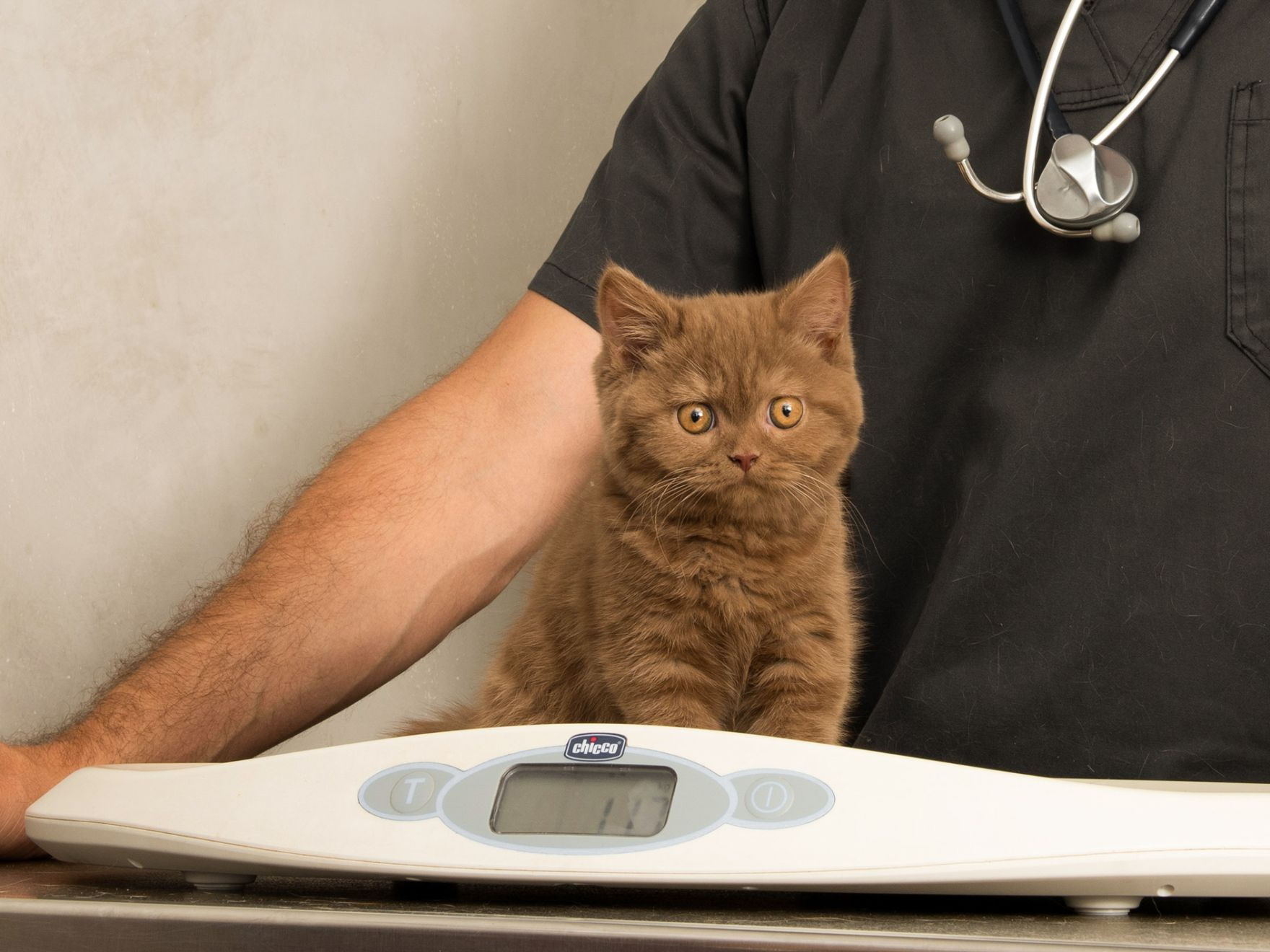Healthy growth lasts a lifetime
Losing weight is more difficult than preventing weight gain in the first place, so it's important that healthy habits and behaviors are set from day one.
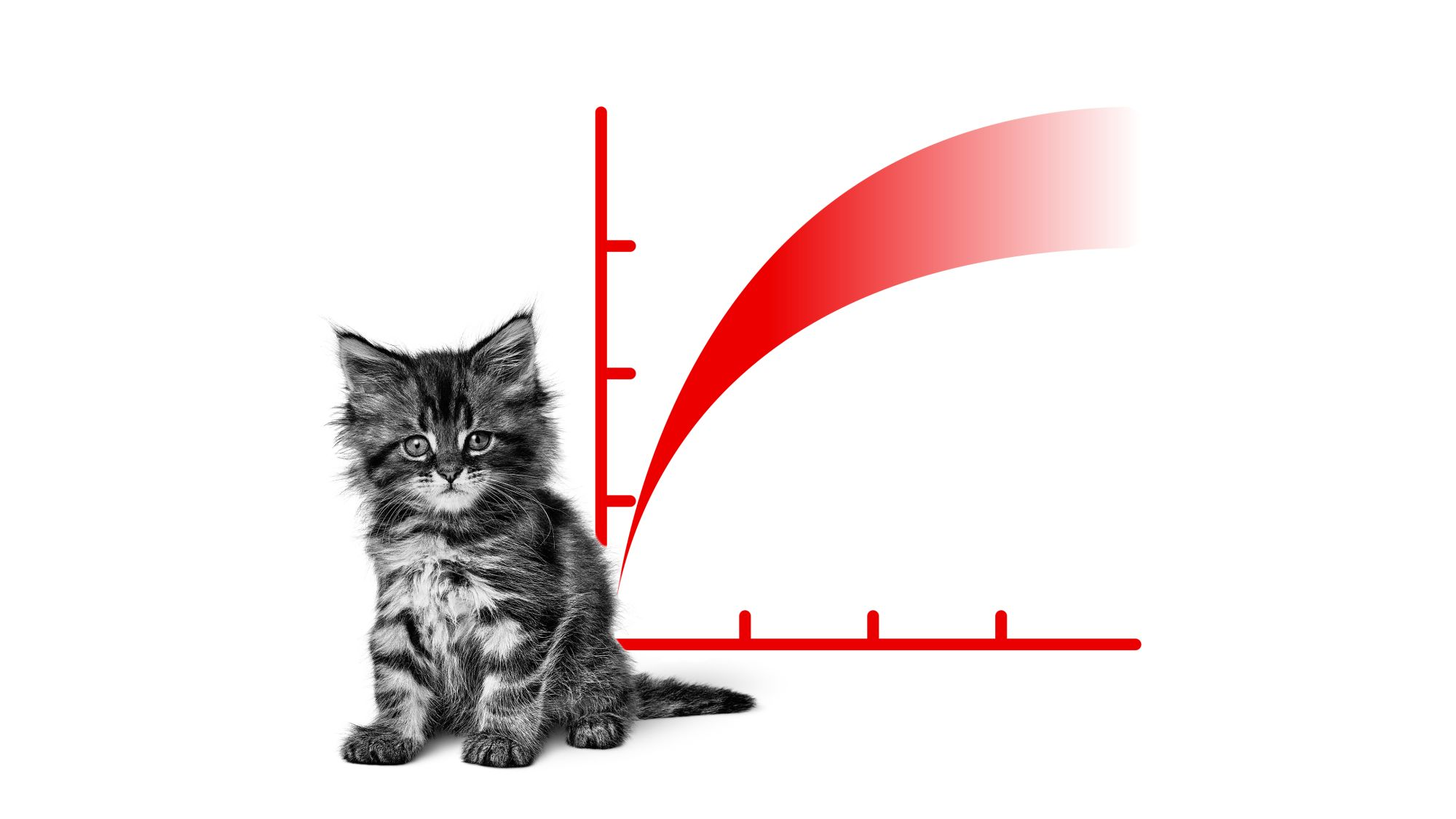
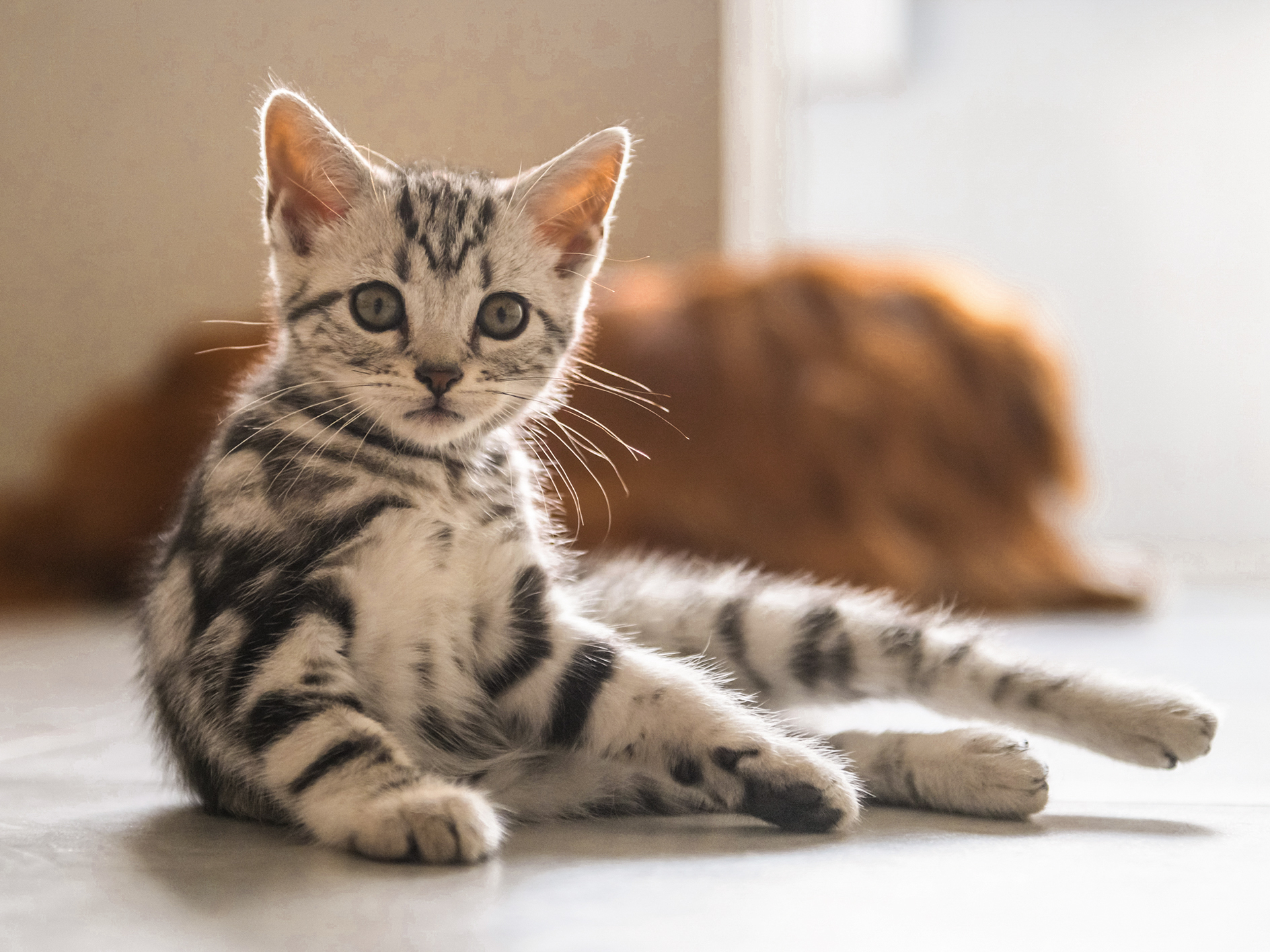
My kitten's development stages
In the first few weeks of your kitten's life, they will grow and change very quickly. At first, kittens are too small and weak to walk and, instead, will crawl on their tummies, relying on their sense of smell to find their mother to feed.
At around 8 weeks of age, the mother cat will wean her kittens and they will then be old enough to go to a new home. At 12 months of age, your kitten is considered to be an adult cat but some cats can continue growing.
Understanding how your kitten's normal shape and size will change as it matures through each development stage will help you be confident your kitten is progressing well. Keeping a regular eye on your kitten and checking for changes to their normal shape every couple of weeks will alert you to any periods of unhealthy weight gain so that you can take action with your veterinarian.
A kitten's different needs at each stage
Until they're around 8 weeks old, kittens rely on their mother's milk for all their nutritional needs. Specially formulated kitten food can gradually be introduced from the age of 4 weeks. When they reach 8 to 12 weeks old, mothers will wean their kittens.
Up until the age of three to four months, kittens will have almost three times more energy than an adult cat due to their intense growth period. Food needs to be energy dense, rich in protein and highly digestible. They also need constant access to clean drinking water.
Between the ages of 4 and 12 months old, the growth rate slows but the activity levels increase significantly. Expending this amount of energy as they start running, jumping, playing and exploring means your kitten will need to eat the correct diet to reflect this, across several small meals a day.
If you are considering spaying or neutering your kitten, the procedure should be done before they are 6 months old and prior to a female kitten’s first heat cycle. Sterilisation prevents unwanted litters, helps to protect against serious health issues, and may improve behaviour. However, the process does impact the calorie ration your kitten will need due to hormonal changes. After sterilisation, a kitten’s appetite can increase by as much as 18% in females and by approximately 20-25% in males but their actual energy requirement reduces by 30% so it will be vital to adapt their food portion for healthy weight management.
At around 12 months old, your kitten will mature into an adult cat and can move on to a diet especially formulated for their changing needs.
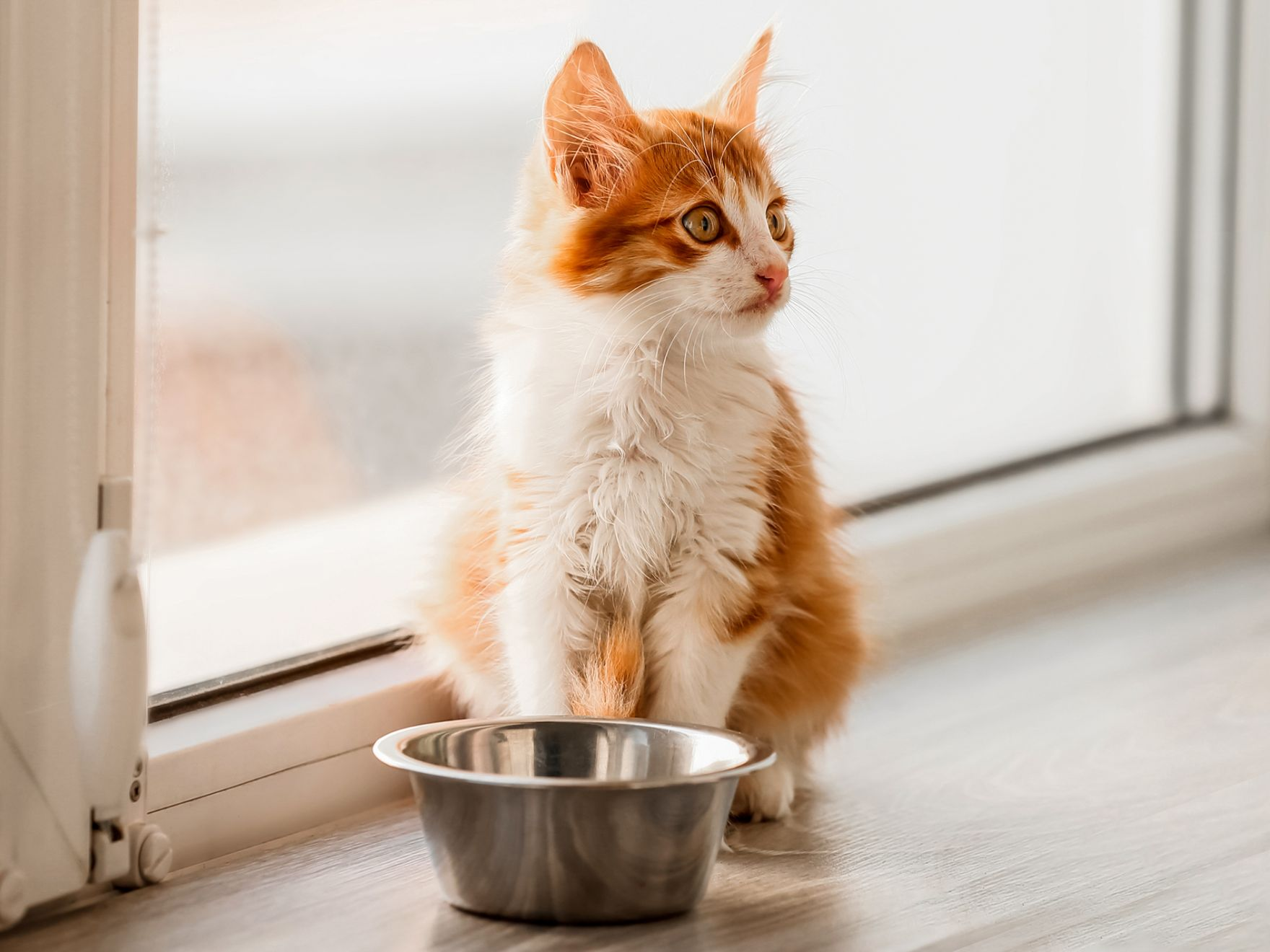
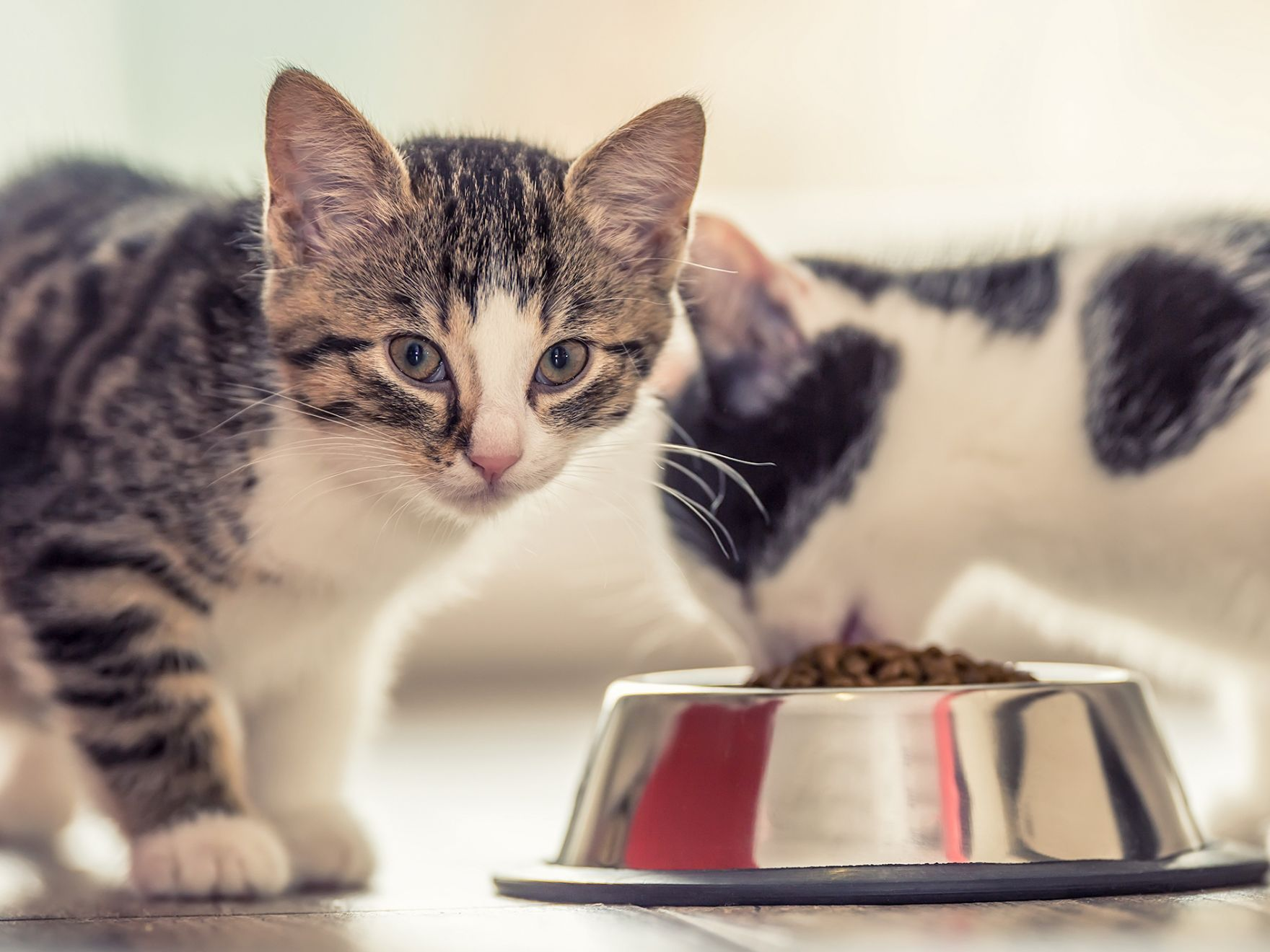
A healthy weight starts with healthy habits
If your kitten eats more calories than they need each day, they'll start to put on weight. Obesity in kittens can lead to a range of health problems in later life. To prevent such health risks for your young pet, it's vital that you introduce healthy habits into their daily life from the start.
It's better for your kitten to eat little and often, rather than eating two big meals, so try giving your kitten multiple small meals a day. To avoid overfeeding, always measure out your kitten's daily food portion and divide it up accordingly.
Kittens love to exercise and will thrive on short bursts of intense activity and play. Ensuring that these short bursts of playful activity happen regularly will help your pet to stay fit and healthy and, along with healthy portioning, will help prevent them from becoming overweight. By setting good habits for your pet around exercise and food portions as they grow up, you'll help your kitten maintain a healthy weight into adulthood.
Speak to your veterinarian
As your kitten grows into an adult cat, it’s important to make sure that you’re aware of their changing needs at each developmental stage.
Speaking to your veterinarian and asking any questions you have will help you feel comfortable that your new kitten's needs are met as they grow. Kittens and cats should go for regular veterinary examinations for routine health care and advice.
Veterinary advice and support are especially important when it comes to making any changes to your pet’s diet, or if you suspect that something may be affecting your kitten or cat’s health. Calling on a professional opinion will put your mind at ease from the start and help you give your kitten a perfect start in life.
